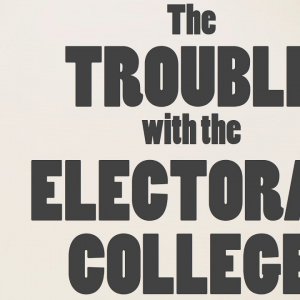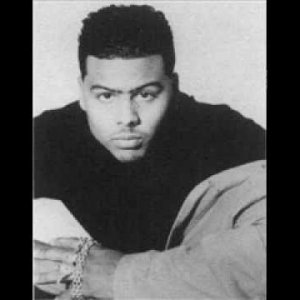You are using an out of date browser. It may not display this or other websites correctly.
You should upgrade or use an alternative browser.
You should upgrade or use an alternative browser.
Beauty - Hair Care - Fashion : Regulating Braids and Cornrows...
- Thread starter Aqil
- Start date
- Replies 9
- Views 5K
African-American Women in High Hair Demand in the Salon Industry
WATERBURY, CT - You could call Gloria Clemon-Vance the "Queen Latifah" of Waterbury's African-American hair salon community. The Waterbury native has been running her own hair salon in Waterbury for 16 years, relaxing hair, weaving, waving - and sharing all sorts of secrets and laughs with her customers. "There are a lot of people who come for the socialization," says Clemon-Vance, owner of Cut-N-Up on Chase Avenue. "To do this job, you must be a good listener. You must have sharp ears, because you're a sounding board. You're that person you can vent to." As a result, says the 49-year-old, "Nothing shocks me today. Nothing."
Clemon-Vance giggles. Already this morning her shop is filling with customers who swap gossip and humor over the sounds of Judge Joe Brown on television. Cut-N-Up is a lot like the salon depicted in the film "Beauty Shop," a celebration of the free-flowing exchanges and culture particular to salons patronized mostly by African-American women.
In the U.S., Black female salon owners are among the most successful entrepreneurs in their communities. And no wonder, considering how much money African-American women spend on hair care and beauty needs. African-Americans spend an estimated $5.7 billion a year in the beauty and barber industry, and Black women visit the salon an average of 2.5 times a month, data from the research firm Business Trend Analysts Inc./The Leading Edge Group, of Commack, NY show.
And in an industry dominated by women, African-Americans make up 16% of professionals in the nation's hair, nail and skin care salons, according to the National Accrediting Commission of Cosmetology Arts and Sciences in Alexandria, VA. "The majority of these stylists make more money than white-collar workers," said Terri Winston, CEO and publisher of Chicago-based Salon Sense magazine, a trade publication. "You have more Black women owning beauty salons now. The (loans and financing) are more rapidly available than they were 20 years ago."
Clemon-Vance always wanted to be a business owner, in part because her father, a welder, had his own business. "I always wanted to be an entrepreneur," she says. And she had plenty of role models. They include two teachers at her high school who paid particular attention to Clemon-Vance after her mother died of an aneurysm when the hairstylist was only 13, and Carolyn Washington, a hairstylist under whom Clemon-Vance worked when she was just starting out in her early 20s. "She gave me my start," said Clemon-Vance, who worked at Mr. Dan's with Washington before moving to Burton Street and taking charge of her own business."I needed to watch somebody who knew the trade, who had mastered the trade. I needed someone to watch, to observe," she said. For Clemon-Vance, Washington was it.
Black women's success in the beauty business began in the early 1900s with beauty mogul Madame C.J. Walker, who became the first Black female millionaire. She produced and distributed a line of hair and beauty products for Black women, and trained hair "culturists," who are commonly known as stylists today. "It was lucrative - especially during the Jim Crow era when most African-American women were in domestic work or industries that didn't pay much," said Tiffany Gill, an assistant professor of history at the University of Texas at Austin. Gill wrote her doctorate dissertation on political activism among Black female salon owners. "It provided independence. They were able to take risks because they knew they wouldn't lose their jobs for taking a stance," Gill said.
Today, many Black hair stylists start out either by renting booth space or working on a commission basis in a salon. In "Beauty Shop," Queen Latifah plays "Gina Norris," a hair stylist who quits her job at an upscale salon and reopens a rundown shop in a predominantly Black community.
Most black-owned beauty salons still are located in predominantly Black neighborhoods. Even small storefront shops are known for having long waits to get to the shampoo bowl, but typically charge less than salons in pricier metropolitan areas, where proprietors can earn from $100,000 to $300,000 a year. "In metro areas, one client could walk in and pay anywhere from $100 to $150 for a service. If they're seeing 20 clients a day, 100 minimum a week, that's very lucrative," said Winston, who estimates she personally spends between $10,000 and $12,000 a year on hair, nail and spa services.
Clemon-Vance, whose two daughters, Ashley and Taloria, study or practice the trade, says newer techniques, like braiding, have cut into her business somewhat. But she says she still enjoys the trade and is proud to call herself a business owner, just as her father did. "I will always do hair, because I enjoy my job every day," said Clemon-Vance, who, like her husband Russell, is engaged in church ministry. "It's always something different."
African-Americans make up 16% of professionals in the nation's hair, nail and skin care salons, according to the National Accrediting Commission of Cosmetology Arts and Sciences in Alexandria, VA.
WATERBURY, CT - You could call Gloria Clemon-Vance the "Queen Latifah" of Waterbury's African-American hair salon community. The Waterbury native has been running her own hair salon in Waterbury for 16 years, relaxing hair, weaving, waving - and sharing all sorts of secrets and laughs with her customers. "There are a lot of people who come for the socialization," says Clemon-Vance, owner of Cut-N-Up on Chase Avenue. "To do this job, you must be a good listener. You must have sharp ears, because you're a sounding board. You're that person you can vent to." As a result, says the 49-year-old, "Nothing shocks me today. Nothing."
Clemon-Vance giggles. Already this morning her shop is filling with customers who swap gossip and humor over the sounds of Judge Joe Brown on television. Cut-N-Up is a lot like the salon depicted in the film "Beauty Shop," a celebration of the free-flowing exchanges and culture particular to salons patronized mostly by African-American women.
In the U.S., Black female salon owners are among the most successful entrepreneurs in their communities. And no wonder, considering how much money African-American women spend on hair care and beauty needs. African-Americans spend an estimated $5.7 billion a year in the beauty and barber industry, and Black women visit the salon an average of 2.5 times a month, data from the research firm Business Trend Analysts Inc./The Leading Edge Group, of Commack, NY show.
And in an industry dominated by women, African-Americans make up 16% of professionals in the nation's hair, nail and skin care salons, according to the National Accrediting Commission of Cosmetology Arts and Sciences in Alexandria, VA. "The majority of these stylists make more money than white-collar workers," said Terri Winston, CEO and publisher of Chicago-based Salon Sense magazine, a trade publication. "You have more Black women owning beauty salons now. The (loans and financing) are more rapidly available than they were 20 years ago."
Clemon-Vance always wanted to be a business owner, in part because her father, a welder, had his own business. "I always wanted to be an entrepreneur," she says. And she had plenty of role models. They include two teachers at her high school who paid particular attention to Clemon-Vance after her mother died of an aneurysm when the hairstylist was only 13, and Carolyn Washington, a hairstylist under whom Clemon-Vance worked when she was just starting out in her early 20s. "She gave me my start," said Clemon-Vance, who worked at Mr. Dan's with Washington before moving to Burton Street and taking charge of her own business."I needed to watch somebody who knew the trade, who had mastered the trade. I needed someone to watch, to observe," she said. For Clemon-Vance, Washington was it.
Black women's success in the beauty business began in the early 1900s with beauty mogul Madame C.J. Walker, who became the first Black female millionaire. She produced and distributed a line of hair and beauty products for Black women, and trained hair "culturists," who are commonly known as stylists today. "It was lucrative - especially during the Jim Crow era when most African-American women were in domestic work or industries that didn't pay much," said Tiffany Gill, an assistant professor of history at the University of Texas at Austin. Gill wrote her doctorate dissertation on political activism among Black female salon owners. "It provided independence. They were able to take risks because they knew they wouldn't lose their jobs for taking a stance," Gill said.
Today, many Black hair stylists start out either by renting booth space or working on a commission basis in a salon. In "Beauty Shop," Queen Latifah plays "Gina Norris," a hair stylist who quits her job at an upscale salon and reopens a rundown shop in a predominantly Black community.
Most black-owned beauty salons still are located in predominantly Black neighborhoods. Even small storefront shops are known for having long waits to get to the shampoo bowl, but typically charge less than salons in pricier metropolitan areas, where proprietors can earn from $100,000 to $300,000 a year. "In metro areas, one client could walk in and pay anywhere from $100 to $150 for a service. If they're seeing 20 clients a day, 100 minimum a week, that's very lucrative," said Winston, who estimates she personally spends between $10,000 and $12,000 a year on hair, nail and spa services.
Clemon-Vance, whose two daughters, Ashley and Taloria, study or practice the trade, says newer techniques, like braiding, have cut into her business somewhat. But she says she still enjoys the trade and is proud to call herself a business owner, just as her father did. "I will always do hair, because I enjoy my job every day," said Clemon-Vance, who, like her husband Russell, is engaged in church ministry. "It's always something different."
African-Americans make up 16% of professionals in the nation's hair, nail and skin care salons, according to the National Accrediting Commission of Cosmetology Arts and Sciences in Alexandria, VA.
This is in the news again ... 
Braiding African American hair at center of overregulation battle in Oregon
Published: Saturday, August 11, 2012, 3:00 PM Updated: Monday, August 13, 2012, 9:07 AM
In the 1950s, one out of every 20 U.S. jobs required a state license. Since then, our economy has evolved from one based on manufacturing to one dominated by service professions. Today, almost 1 in 3 American occupations requires a license.
Traditional African braiding -- the art of weaving hair into tight snakelike rows, often with extensions or beads -- has become a common battle ground in the war over occupational licensing. Braiding is a skill many women of color learn as children and offers easy entry into the business world because so few tools are required. Braiders don't use chemicals, heat or scissors.
Yet many states require braiders to earn a cosmetology license. In Oregon, that means spending up to 1,700 hours in beauty school, where tuition can run anywhere from $10,000 to $20,000.
Click Here To Read Entire Article

Destee

Braiding African American hair at center of overregulation battle in Oregon
Published: Saturday, August 11, 2012, 3:00 PM Updated: Monday, August 13, 2012, 9:07 AM
In the 1950s, one out of every 20 U.S. jobs required a state license. Since then, our economy has evolved from one based on manufacturing to one dominated by service professions. Today, almost 1 in 3 American occupations requires a license.
Traditional African braiding -- the art of weaving hair into tight snakelike rows, often with extensions or beads -- has become a common battle ground in the war over occupational licensing. Braiding is a skill many women of color learn as children and offers easy entry into the business world because so few tools are required. Braiders don't use chemicals, heat or scissors.
Yet many states require braiders to earn a cosmetology license. In Oregon, that means spending up to 1,700 hours in beauty school, where tuition can run anywhere from $10,000 to $20,000.
Click Here To Read Entire Article

Destee
Similar threads
Beauty - Hair Care - Fashion :
weaves, braids, extensions damage hair.....
- Replies
- 4
- Views
- 1K
Beauty - Hair Care - Fashion :
Yarn Braids
- Replies
- 3
- Views
- 4K
Beauty - Hair Care - Fashion :
New Study Shows Weaves & Braids Cause Early Hair Loss In Black Women
- Replies
- 0
- Views
- 2K
Beauty - Hair Care - Fashion :
WHAT IS WRONG WITH BRAIDS??? UHHH!
- Replies
- 29
- Views
- 42K
Beauty - Hair Care - Fashion :
i got a gazillion braids to take down
- Replies
- 25
- Views
- 14K






